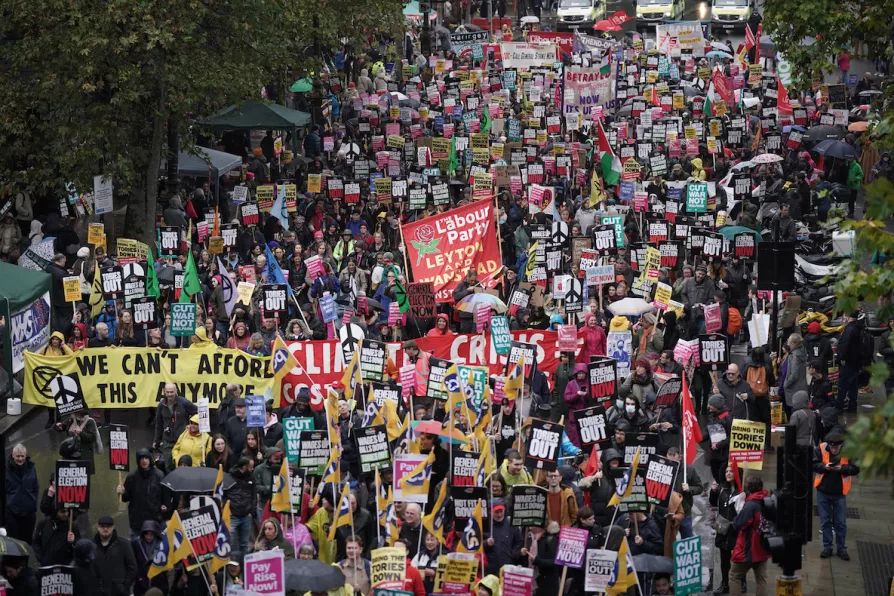Eighty-one years after the liberation of Auschwitz, the threat of far-right extremism is resurging – the lessons of history demand unity, organisation and resistance, argues SABBY DHALU

 MOVEMENT: People take part in the People’s Assembly Britain is
Broken national demonstration in central London, November 5 2022
MOVEMENT: People take part in the People’s Assembly Britain is
Broken national demonstration in central London, November 5 2022
PART ONE of this article gave a brief account of how the left won the leadership of the Labour Party but not the support of significant sections of the working class. This part considers potential drivers for radical change and how we might move forward.
Central to much of the argument in support of a new workers’ party is the notion that it is the vehicle itself — the Labour Party — that is the problem — if we just started from the beginning and rebuilt it, we could indeed build a party capable of delivering socialism.
It is therefore necessary, the argument continues, that the trade unions should disaffiliate and use their resources to build this new left enterprise.

In the run-up to the Communist Party congress in November ROB GRIFFITHS outlines a few ideas regarding its participation in the elections of May 2026

VINCE MILLS cautions over the perils and pitfalls of ‘a new left party’

VINCE MILLS gathers some sobering facts that would inevitably be major obstacles to any such initiative











